Mechano-biology of motile and neuronal structures
Team Leader : Gregory Giannone
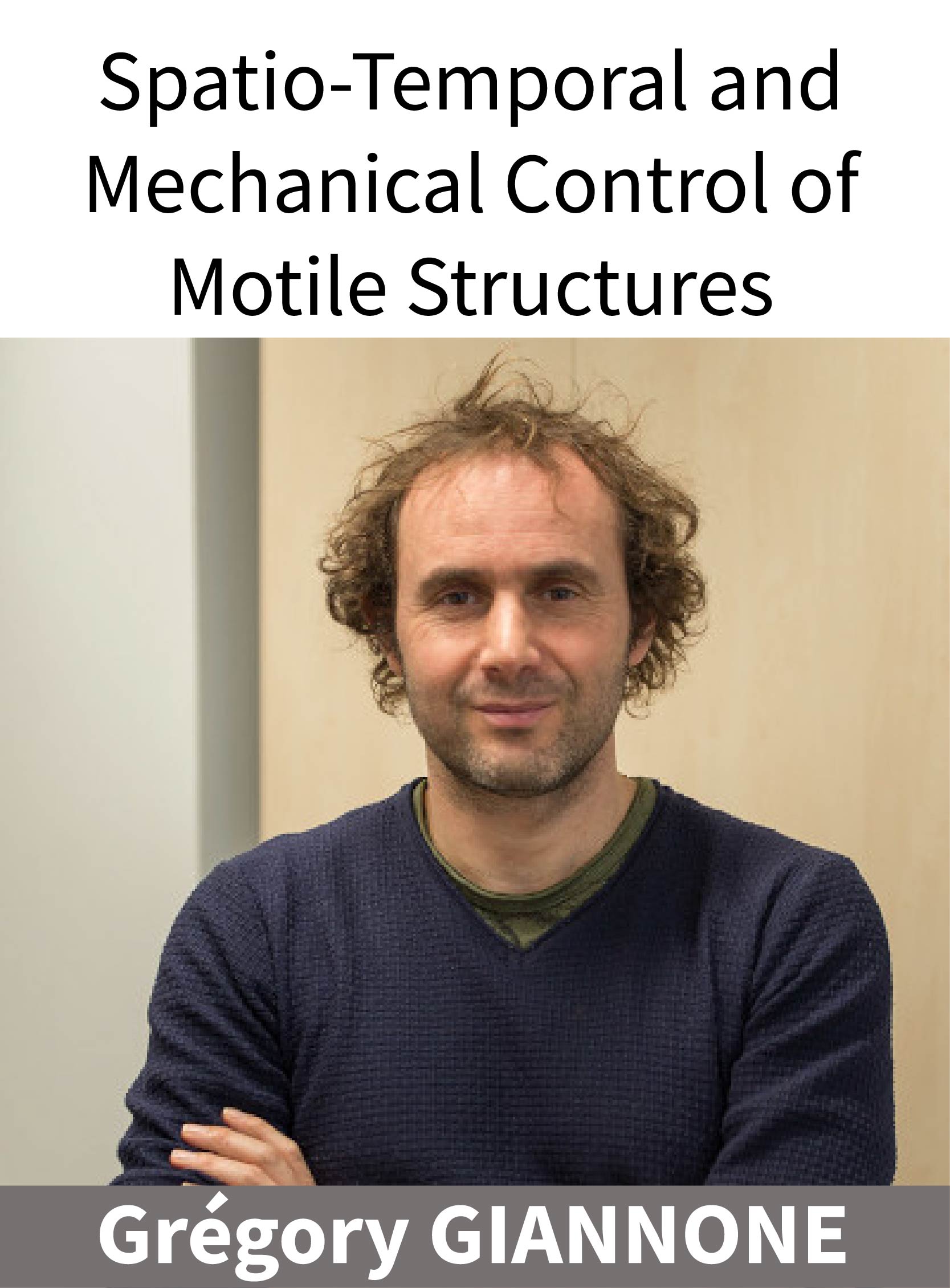
Our team explores the spatiotemporal and mechanical mechanisms driving the dynamics of structures and proteins regulating cell motility
General objective

Cells have the ability to adjust their adhesive and cytoskeletal organizations according to changes in the biochemical and physical nature of their surroundings. In return, by adhering and generating forces on neighboring cells and extracellular matrices cells control their environment, shape and movement. This is true from integrin-based adhesive structures of migrating cells to synapses of neurons. Those adhesive structures are the converging zones integrating biochemical and biomechanical signals arising from the extracellular space and the actin cytoskeleton. Thus, the life-cycle of adhesive and cytoskeletal structures are involved in critical cellular functions such as migration, proliferation and differentiation, and regulate cell behavior in many physiological responses such as development. Alterations of adhesive and cytoskeletal organizations contribute to pathologies including cancer, but also cognitive disorders.
At the molecular, sub-cellular, and cellular levels, cell shaping and motility proceed through cycles lasting from seconds to minutes. During those cycles, critical proteins undergo stochastic motions and transient interactions that are essential to their functions. Regulation of these interactions by forces is at the base of mechano-transduction events controlling cell behavior. Therefore, to understand the molecular mechanisms controlling the life cycle of motile structures, it is crucial to study the position and dynamics of proteins but also their interactions and how mechanical forces control these molecular events.
Our goal is to decipher at the molecular level the spatiotemporal and mechanical mechanisms which control the architecture and dynamics of motile structures including integrin-based AS, the lamellipodium and dendritic spines. Exploration of these new dimensions requires an innovative and multidisciplinary approach combining cell biology, biophysics, biomechanics and advanced optical microscopy techniques including super-resolution microscopy, single protein tracking and quantitative image analysis.
We are developing three specific axes: 1/ Integrin adhesion 2/ Actin in dendritic spines 3/ Super-resolution developments
Expertise
News
Orré T., Rossier O. and Giannone G. in Nature Communications - May 2021
Focal adhesions (FAs) initiate chemical and mechanical signals involved in cell polarity, migration, proliferation and differentiation. Super-resolution microscopy revealed that FAs are organized at the nanoscale into functional layers from the lower plasma membrane to the upper actin cytoskeleton. Yet, how FAs proteins are guided into specific nano-layers to promote interaction with given targets is unknown. Using single protein tracking, super-resolution microscopy and functional assays, we link the molecular behavior and 3D nanoscale localization of kindlin with its function in integrin activation inside FAs. We show that immobilization of integrins in FAs depends on interaction with kindlin. Unlike talin, kindlin displays free diffusion along the plasma membrane outside and inside FAs. We demonstrate that the kindlin Pleckstrin Homology domain promotes membrane diffusion and localization to the membrane-proximal integrin nano-layer, necessary for kindlin enrichment and function in FAs. Using kindlin-deficient cells, we show that kindlin membrane localization and diffusion are crucial for integrin activation, cell spreading and FAs formation. Thus, kindlin uses a different route than talin to reach and activate integrins, providing a possible molecular basis for their complementarity during integrin activation.
 Contacts IINS: Olivier Rossier and Grégory Giannone
Contacts IINS: Olivier Rossier and Grégory Giannone
Gregory Gianonne and his team win the FRM Team Price 2023
Created in 1948, the Fondation pour la Recherche Medicale (FRM) has as an aim to support and fund the public research in every medical and pathophysiologic fields.
Thus, the FRM supports more than 400 new researches conducted in the laboratories of public research and higher education organisations every year (INSERM, CNRS, INRA, CEA, Universities, Prestigious Universities, health institution, …).
Gregory Giannone (CNRS researcher and team leader “Mechano-biology of motile and neuronal structure”) and his team have just won the FRM Team Price 2023!
This price is awarded to teams proposing an innovative research program in biology with potential health applications.
Gregory Giannone’s team explains us their project:
"Adhesive and cytoskeletal structures control cell functions such as migration and proliferation. As such they regulate cell behavior during physiological processes such as development; but when altered, these structures contribute to pathologies including cancer. How assembly of adhesive and cytoskeletal structures and resulting mechanical forces are coordinated to shape cell movements and morphologies during development and cancer progression remains fundamental questions. Despite recent advances in imaging methods in multicellular environments (organoids, small organisms), a molecular understanding of these fundamental processes is still lacking. To reach this molecular understanding, we developed for the last ten years, new strategies to study integrin adhesions and actin-based protrusions at the molecular level using super-resolution microscopy and single protein tracking. We unraveled key molecular events leading to: integrins activation and mechano-sensing in healthy and cancer cells; actin assembly in dendritic spines, and in lamellipodia. However, these findings were obtained by studying isolated cells on stiff 2D substrates. In this proposal, we aim to reach a molecular understanding of cell movements and morphologies in 3D multicellular assemblies characterized by softer, confined and dynamic 3D environments. In this project, we will decrypt the mechanical and biochemical molecular rules that govern the assembly, dynamics and coordination of integrin adhesions and actin protrusions in 3D multicellular systems during two fundamental processes: (AIM 1) the formation of long-lasting macromolecular complexes in vivo during development of integrin-based muscle attachment sites in Drosophila; (AIM 2) the formation of transient macromolecular complexes supporting the ability of Small Cell Lung Cancer cells to assemble into spheroids and to migrate during metastasis. This project could help to find new and more specific therapeutic strategies against this cancer."
Congratulations to the "Mechano-biology of motile and neuronal structure" team!
Selected Publications
MORE
MORE
Display the article MORE
MORE
MORE
MORE
MORE
MORE
MORE
MORE
MORE
Members
« Researcher »
| GIANNONE Gregory | Researcher | gregory.giannone@u-bordeaux.fr | +33533514708 | 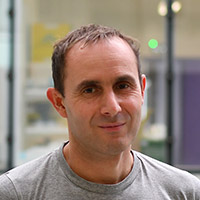 |
| ROSENDALE Morgane | Researcher | morgane.rosendale@u-bordeaux.fr | +33533514700 | 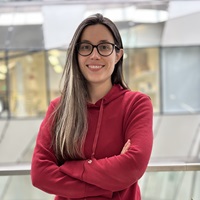 |
| ROSSIER Olivier | Researcher | olivier.rossier@u-bordeaux.fr | +33533514742 | 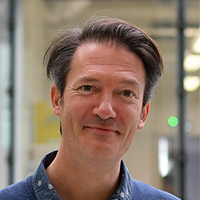 |
« Technical Staff »
| BENFARHONE Dounia | Technical staff | dounia.benfarhone@u-bordeaux.fr | +33533514700 | |
| FABRE Mélanie | Technical staff | melanie.fabre@u-bordeaux.fr | +33533514742 | 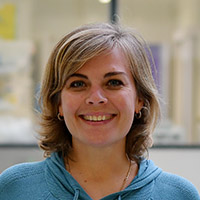 |
« Postdoc »
| CORRADI Eloina | Postdoc | eloina.corradi@u-bordeaux.fr | +33533514700 | |
| DEVASIA Jyothis | Postdoc | jyothis.devasia@u-bordeaux.fr | +33533514700 | |
| JOLY Adrien | Postdoc | adrien.joly@u-bordeaux.fr | +33533514783 | 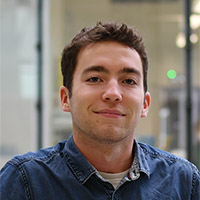 |
| MEHIDI Amine | Postdoc | mohamed.mehidi@u-bordeaux.fr | +33533514700 | |
| SENIGAGLIESI Beatrice | Postdoc | beatrice.senigagliesi@u-bordeaux.fr | +33533514700 | |
| ZHOU XUESI | Postdoc | xuesi.zhou@u-bordeaux.fr | +33533514783 | 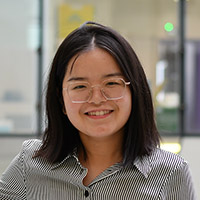 |
« PhD student »
| BERGAMO Lorenzo | PhD student | lorenzo.bergamo@u-bordeaux.fr | +33533514700 | |
| DUDON Théo | PhD student | theo.dudon@u-bordeaux.fr | +33533514700 | |
| HAFFIANE Nassim | PhD student | nassim.haffiane@etu.u-bordeaux.fr | +33533514700 | 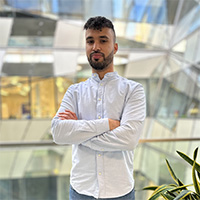 |
| MILANOVIC Violeta | PhD student | violeta.milanovic@u-bordeaux.fr | +33533514700 | 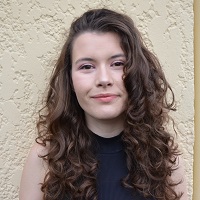 |
« Student »
| SPANINKS Yonathan | Student | yonathan.spaninks@u-bordeaux.fr | +33533514700 |
« Alumni & Guests »
Visitors and guests (affiliation, position and dates)
- Julien Sage (Stanford University, professor, 04-07/2019)
- Nicolas Tardif (Institut Curie, graduate student, 05/2018)
Former team members (position at the time, dates, current position)
- Adiyodi Veetil Radhakrishnan (post-doctoral fellow, 2017 - 2020, post-doctoral fellow at University of Bayreuth in Mathias Weiss lab)
- Filipe Nunes-Vicente (graduate student, 2016 - 2021, post-doctoral fellow at EMBL - Heidelberg in Alba Diz-Muñoz lab)
- Ani Augustine Jose (graduate student, 2016 - 2021, research associate at King's College - London in Simon Ameer-Beg lab)
- Sophie Massou (post-doctoral fellow, 2014 - 2017)
- Thomas Orré (graduate student, 2014 - 2018, data scientist in Bordeaux)
- Zeynep Karatas (lab manager, 2013 - 2020, lab manager at MBI - Singapore in Virgile Viasnoff lab)
- Amine Mehidi (graduate student, 2012 - 2019, post-doctoral fellow at University of Geneva in Charlotte Aumeier lab)